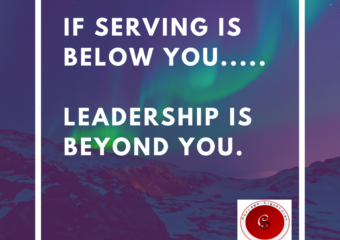It has been six months since the start of 2020 and already the news looks something out of the book of Revelations. A quick recap of the major stories so far reads: January 2020 – Australian wildfires and Tensions rise between Iran and America after US base attacked. February 2020 – President Trump impeached and acquittal. First US death in COVID-19. Flooding in Southern United States. March 2020 – State of Emergency declared. Toilet paper crisis. Americans told to stay home except for non-essential personnel. Stimulus of $1200 per America adult approved. April 2020 – Coronavirus lockdown of the United States economy and citizenry continues. Tornadoes across the southern United States. Fires in Chernobyl radioactive zone. May 2020 – Murder Hornets. Shootings in 3 states. Black Lives Matter protests and riots begin. Earthquakes in Puerto Rico and Nevada, mudslides in Italy, and Michigan dam bursts. June 2020 – Black Lives Matter protests and riots continue. COVID-19 begins to rise again. Fuel spill in Russian Arctic. City Councils begin the vote to disband or cut funding of the police force (Minneapolis, Oakland, Los Angeles, and New York City). Capitol Hill district of Seattle declares itself an autonomous zone after overthrowing the local government.
We have seen everyday routines move from panic to lockdown to social unrest. Yet one thing that became abundantly clear was the lack of financial planning and preparation that the average American has within their savings or checking account. However, the one thing that was shown is that Americans relied heavily upon credit cards and debt.
For millions of people across the nation and globe their governments closed non-essential business. This effectively wiped out over 14 million jobs within the United States according to the Pew Research Foundation. While in April that number jumped to over 22 million unemployed. Yet the staggering issue was not just those that were now unemployed but those that were employed but not receiving a paycheck. This issue highlighted a need for increased financial security both as a nation and as an individual.
-
 Leather Dice Trays$19.99
Leather Dice Trays$19.99 -
 Definition of a ProcrastacosplayerPrice range: $24.99 through $26.99
Definition of a ProcrastacosplayerPrice range: $24.99 through $26.99 -
 T-ShirtPrice range: $24.99 through $26.99
T-ShirtPrice range: $24.99 through $26.99 -
 Wig Prop MachinePrice range: $24.99 through $26.99
Wig Prop MachinePrice range: $24.99 through $26.99 -
 My CosplayPrice range: $24.99 through $26.99
My CosplayPrice range: $24.99 through $26.99 -
 Mitsuri MaskPrice range: $24.99 through $26.99
Mitsuri MaskPrice range: $24.99 through $26.99 -
 You Are$24.99
You Are$24.99 -
 Faith Moves Mountains$24.99
Faith Moves Mountains$24.99 -
 Coffee Cures Jesus Saves$24.99
Coffee Cures Jesus Saves$24.99
Financial Security is not uniquely a civilian or military issue it is a people and societal issue. During the COVID-19 pandemic society within the United States tried to fix the problem with three major stimulus bills enacted at the federal level. This effectively threw $1,200 per adult and over $7.9 trillion in just the first ten years. What does not help is that the federal government effectively caused the unemployment by demanding that President Trump take action to stop the pandemic.
Now to be fair the government did not create the virus. That as we have seen in more recent reports the spread to operate similar to the influenza virus. Yet the governments actions both at the State and local levels have been short of tyrannical is yet to be acknowledged. During the Yellow Fever pandemic of 1795 and the Spanish Influenza pandemic of 1918-1919 the majority of the country in both cases did not shut the economies down. Additionally, there was no government handout to every citizen.
Today’s society has come to expect money being given to them by the Federal and State governments rather than earning it through hard work. Many Americans prior to the twentieth century turned to the Bible for guidance. When looking at handouts the Bible says in Proverbs 10:4 that “He becometh poor that dealeth with a slack hand: but the hand of the diligent maketh rich.” The New International Version says “Lazy people are soon poor; hard workers get rich.” This is interesting when we have a culture that receives money back on taxes, stimulus checks for pandemics, food stamps, welfare checks and government forced retirement savings (Social Security). Additionally, culture has driven the American to seek your reward today and postpone payment on it later.
The give it to me now mentality has forced many people into getting credit cards and racking up debt. The example is shown in the federal government where they continually borrow but never think of repaying what they borrow. Credit has been pushed by the Federal Reserve and local banks for almost a century now. The problem we are now seeing in the twenty-first century is the increase of credit and debt in the everyday expenses.
You are probably saying hold on we need credit in order to buy a car or a house. We even need it to get a rental right? Unfortunately, that line of thinking is a lie. By paying your utilities you are shown to be positive on your ability to pay rent. Additionally, Americans think it is aright of passage to get out of the house as soon as they turn 18 to move away from their parents. The reality is that credit only show how much debt you have and how you handle paying it.
Dave Ramsey has made a living publishing books and teaching classes on how to right size your budget and make compound interest work for you and not against you. Financial Peace University, which College Signatures offers in Norman as part of its counseling and veteran support services, is vital to everyone that is struggling with debt or lives paycheck to paycheck. In Dave’s course his team discusses and shows how debt works against the average person. Getting out of debt is not easy. You did not get into debt in a day and you will not get out in a day either. However, the benefit of being debt free far outweighs the benefits of remaining in debt.
If during the COVID-19 pandemic you have found yourself like millions of other Americans with no savings and wondering where the money is coming from to buy your family groceries, you need to remember you are not alone. You can go to Dave Ramsey’s website to get more resources on learning to budget, gaining an emergency fund, and paying down your debt. You can break the cycle that has been created. Your habits are learned and they can be unlearned as well.
You are probably saying many different excuses to yourself right now. Some of them may sound like these. “I need the credit card so I can continue to eat.” “I only use the credit card when I have too.” “I need credit in order to buy that car or house.” “But everyone has to pay on debt. It is just normal.” These excuses are measures that we have talked ourselves into either because we wanted something then-and-now or because we learned this from the examples in our lives.
Quick story on our background. I received my first credit card in 1998 after reporting to my first duty station in the military. My Chief back then suggested that we have one in order to purchase items we would need on the upcoming deployment. This of course turned into “Free cash” thought. I could purchase the music cd’s and snacks for the upcoming deployment and not worry about not having the money. Then after now incurring this bill it was expected that when we got back off the deployment that we get a vehicle if we didn’t have one otherwise you were stuck on the ship and at the mercy of the duty driver to go out in town. This then added another bill. By the time I left my first duty station I was paying 65 percent of my paycheck to bills that I had incurred. By the time I got married in 2004 my debt had shrunk to a low $5,000. Then after getting married and purchasing the new items for the house “that we just had to have” we found ourselves incurring not only student loans but over $20k in miscellaneous debt. Then natural disaster struck. While insurance the military helped with recouping some out of pocket expenses debt was incurred to replace some of what was lost due to hurricane Katrina. By the time we moved to our next duty station we had paid down the debt to manageable levels.
I think you are seeing the pattern here. Debt became a crutch that we used to justify our lifestyle with things that we thought we needed. Yet this pattern of incurring debt when moving in the military is all to common. Inevitably something breaks, lost or damaged in the military move and one feels they have to replace it. The debt never gets paid completely off and we incur in more and more with each move. By the time the member leaves service they have incurred debt that now is a burden as they transition to civilian life.
If we start now, learning to budget. We can save the financial stresses that life throws our way. Dave says, “you have to live like no one else. So you can live and give like no one else.” The sacrifice you have to make in order to get out of debt is worth the short-term heart ache in order to provide the long-term financial security for you and your family. If you are interested in learning more on how to manage your debt so that future pandemics, disasters, and civil unrest no longer impacts your finances, then look at the classes that are available here for inperson or virtual classes.
